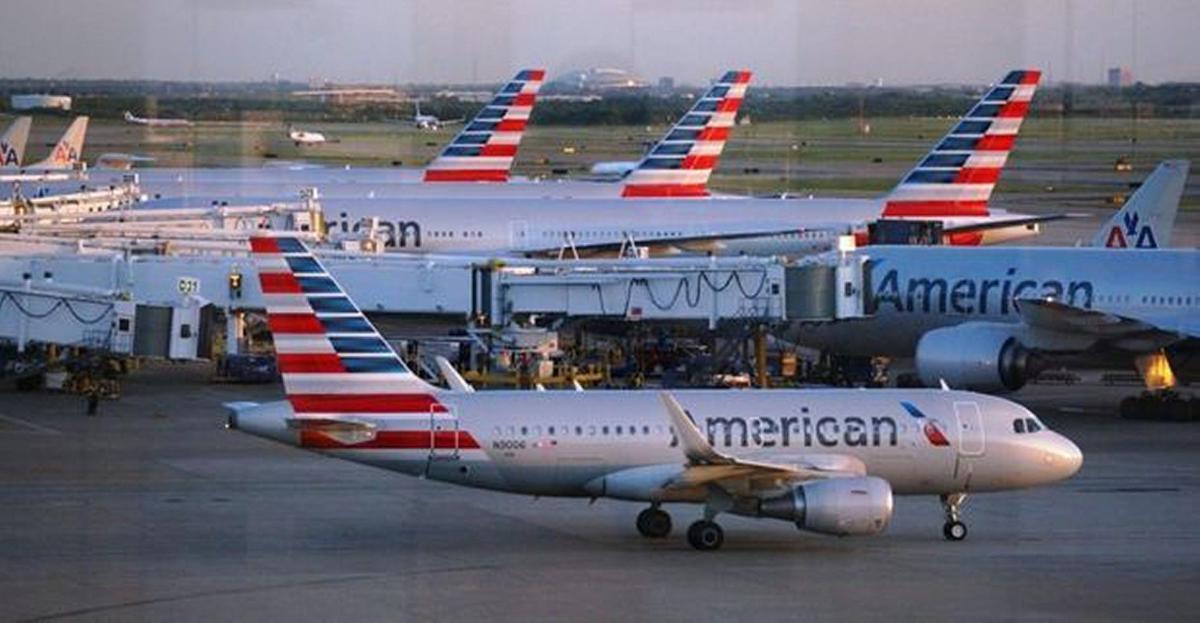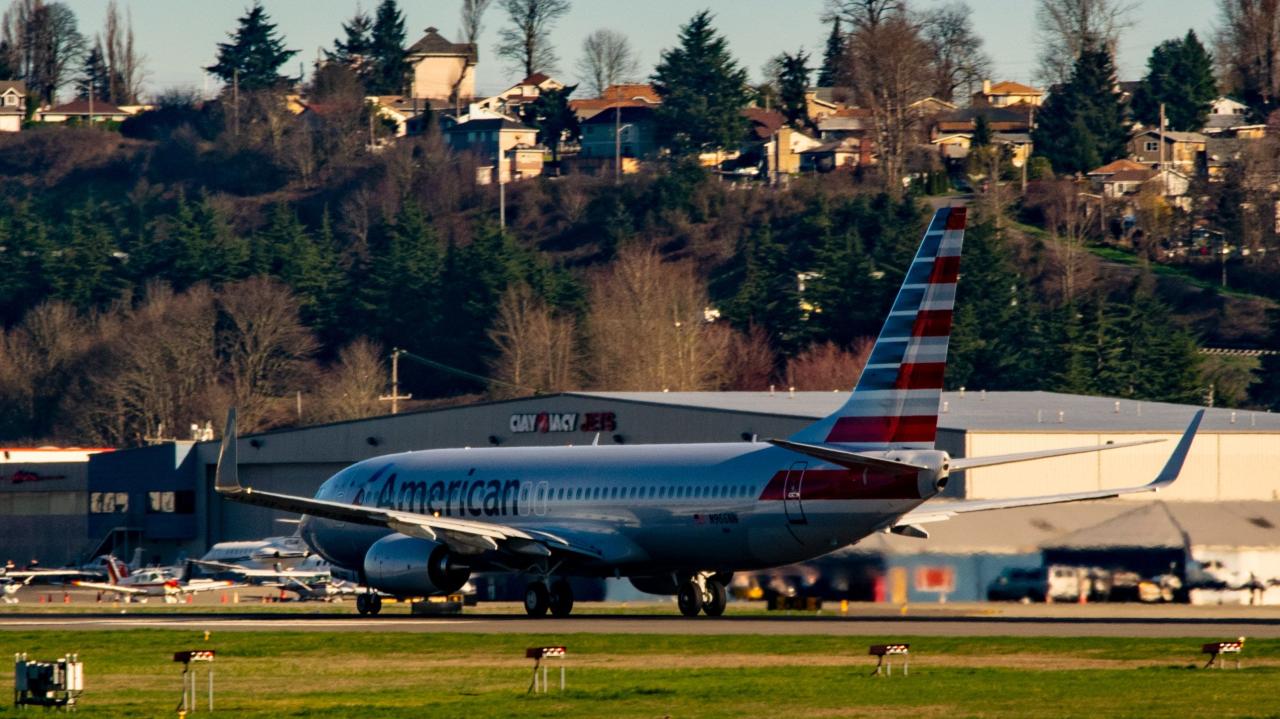American Airlines not flying to Dallas? This unexpected shift in flight routes presents both challenges and opportunities. Understanding the reasons behind these changes—be it strategic adjustments, unforeseen circumstances, or market fluctuations—is key to navigating the evolving landscape of air travel. This exploration will delve into the impact on passengers, the airline’s response, and the potential long-term implications for Dallas and American Airlines itself.
We’ll uncover solutions and explore how this situation can lead to positive adaptations and improved air travel experiences for everyone.
The analysis will cover a range of factors contributing to the altered flight schedules, including airport infrastructure, passenger demand, competitive pressures, and the impact of external events. We will also examine the airline’s communication strategies and explore alternative travel options for affected passengers. Looking ahead, we’ll consider how American Airlines might adjust its long-term strategy and what the future holds for Dallas as a destination served by the airline.
Reasons for Reduced or Cancelled Flights

American Airlines, like any major airline, faces a complex web of factors influencing its flight schedules. Decisions to reduce or cancel flights, particularly to a major hub like Dallas, are rarely simple and often involve a careful balancing act between operational efficiency, financial viability, and passenger demand.
Several key elements contribute to these decisions. Understanding these factors provides insight into the dynamic nature of the airline industry and the challenges faced by carriers in adapting to fluctuating circumstances.
Airport Infrastructure Limitations
Dallas/Fort Worth International Airport (DFW), while a massive and efficient hub, is not immune to capacity constraints. Construction projects, unexpected maintenance issues on runways or gates, or air traffic control limitations can all necessitate adjustments to flight schedules. For example, a major runway resurfacing project might require temporary reductions in flight operations, impacting the number of arrivals and departures for American Airlines.
These situations, while disruptive, are often necessary for long-term improvements to the airport’s infrastructure and safety.
Demand Fluctuations and Seasonal Variations
Passenger demand for air travel is not static; it fluctuates significantly based on seasonality, economic conditions, and special events. During periods of lower demand, such as off-peak travel seasons or economic downturns, airlines might choose to reduce the frequency of flights to certain destinations to avoid operating unprofitable routes. Conversely, during peak travel periods, American Airlines might prioritize adding extra flights to popular routes, potentially impacting the overall allocation of resources to Dallas.
Fuel Costs and Airline Strategy, American airlines not flying to dallas
Fuel represents a significant operating expense for airlines. Sharp increases in fuel prices directly impact an airline’s profitability. When fuel costs rise dramatically, airlines may strategically reduce the number of flights on less profitable routes or those with lower passenger loads to mitigate losses. This could involve temporarily reducing the number of flights to Dallas, particularly on less popular times or days.
For instance, a sudden spike in jet fuel prices comparable to the surge seen in 2008 could force airlines to re-evaluate their flight schedules to maintain financial stability.
Competition from Other Airlines
American Airlines operates in a competitive environment. The presence of other airlines offering flights to Dallas, such as Southwest Airlines, Delta Air Lines, and others, influences American Airlines’ strategic decisions. If competitors offer similar or better flight options at more competitive prices, American Airlines might adjust its flight schedule to maintain its market share and profitability. This could manifest as reduced frequency on certain Dallas routes or a shift in focus to other, less-competitive markets.
Impact of Unforeseen Events
A significant unforeseen event, such as a major natural disaster (e.g., a severe ice storm, a hurricane impacting DFW, or a significant earthquake affecting the surrounding area), can drastically disrupt airline operations. In such a scenario, American Airlines would likely be forced to cancel or significantly reduce flights to Dallas to ensure the safety of passengers and crew, and to allow for repairs and restoration of airport infrastructure.
The impact would be multifaceted, affecting not only immediate operations but also long-term planning and recovery efforts. The extensive disruptions caused by Hurricane Katrina in 2005 serve as a stark reminder of the devastating effects of such events on air travel.
Passenger Impact and Alternative Options: American Airlines Not Flying To Dallas

We understand that flight cancellations and route changes can significantly disrupt travel plans, causing inconvenience and frustration. American Airlines is committed to supporting our passengers during these times and providing the best possible assistance to minimize the impact on your journey. We strive to ensure a smooth and efficient process for rebooking and compensation.The cancellation or alteration of flights to Dallas may lead to missed connections, extended travel times, additional expenses for accommodation and transportation, and overall disruption to pre-arranged schedules and plans.
These unforeseen circumstances can be stressful, and we want to assure you that we are working diligently to address these concerns.
American Airlines Rebooking and Compensation Policies
American Airlines offers various rebooking options to passengers affected by flight cancellations or changes to Dallas routes. These options may include rebooking on the next available American Airlines flight to Dallas, rerouting through alternative airports, or receiving a full refund for the cancelled flight. Compensation may be offered depending on the circumstances of the cancellation and the applicable regulations.
Passengers should contact American Airlines customer service or visit the official website for detailed information on specific eligibility criteria and compensation amounts. For example, if a flight is cancelled due to circumstances within American Airlines’ control, passengers may be entitled to compensation according to the Department of Transportation’s regulations.
Alternative Travel Options
If American Airlines is not flying to your desired Dallas destination, several alternative travel options exist.
- Consider other airlines: Many airlines offer flights to Dallas/Fort Worth International Airport (DFW) and Dallas Love Field (DAL). Researching flights with other carriers like Southwest, Delta, or United could provide alternative travel arrangements.
- Explore alternative airports: If your final destination is within the Dallas-Fort Worth metroplex, investigate nearby airports that might have available flights from your origin city. This could involve a short drive or ground transportation to your final destination within the Dallas area.
- Utilize ground transportation: For shorter distances, ground transportation such as buses or trains could be a viable option, though this may significantly increase travel time. This option may be suitable for those whose final destination is not far from an airport with available flights.
- Adjust your travel dates: Shifting your travel dates, even by a day or two, can often open up more flight options and potentially secure a more convenient flight schedule. Flexibility in travel dates can be a significant advantage in finding suitable alternatives.
Improving Communication with Passengers
American Airlines can enhance its communication with passengers by providing timely and transparent updates regarding flight cancellations and changes to Dallas routes. This includes proactive notifications via email, SMS, and the American Airlines mobile app, offering clear explanations for cancellations, outlining available rebooking options, and providing accurate information on compensation policies. Implementing a dedicated customer support line specifically for passengers affected by these changes would further improve communication and reduce wait times.
Furthermore, providing regular updates on the airline’s website regarding the status of Dallas flights and any potential disruptions would greatly benefit passengers in proactively managing their travel plans. Clear and concise communication is vital in mitigating passenger frustration and maintaining trust.
While the temporary absence of American Airlines flights to Dallas presents immediate challenges, it also offers opportunities for both the airline and the city. By understanding the contributing factors, adapting to the changes, and focusing on clear communication and passenger support, American Airlines can navigate this situation effectively. The experience can ultimately lead to a stronger, more resilient air travel system and a more robust relationship between the airline and its customers.
The focus on transparency, proactive solutions, and passenger well-being will pave the way for a more positive future.
User Queries
What compensation can I expect if my American Airlines flight to Dallas is cancelled?
American Airlines’ compensation policies vary depending on the reason for the cancellation and your ticket type. Check their website or contact customer service for details on your specific situation. They often offer rebooking options and may provide refunds or travel vouchers.
Are there other airlines that fly to Dallas from my origin city?
Yes, several airlines typically serve Dallas. Check online travel agencies or the websites of major airlines to find alternative flight options.
How can I stay updated on the status of American Airlines flights to Dallas?
Regularly check the American Airlines website or app for flight updates. You can also sign up for email or text alerts for your specific flight.
What if I need to change my travel dates due to the flight cancellations?
Contact American Airlines customer service as soon as possible to discuss rebooking options and any associated fees. Flexibility is key in such situations.